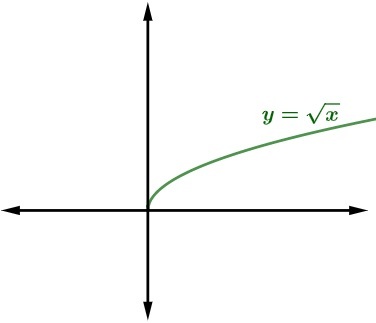In election times, there is no lack of promises. In the election for public office, whether at the municipal, state or federal level, the appeal and attempt to convince through promises is one of the mechanisms most used by candidates. And in this search for the vote, for support, candidates can get lost amid the promises of shares impracticable, either because of the complexity of the matter, or because of the limitation of the legal attributions of the desired position. However, in the eagerness for victory, not only is there too much talk, but absurdities are promised, as is seen in the elections for councilor every four years. In this sense, knowing the attributions and true functions of the municipal legislative office is essential not only for those who aspire to occupy such positions, but mainly for voters, who, armed with some notions, will easily be able to identify fallacies, lies and a sort of voter speeches that are absolutely out of touch with the reality.
But, what does the councilor do?
As a political agent, he is part of the legislative power, being elected through direct elections and, therefore, chosen by the population to be its representative. This notion of representative of society is among the most expensive notions among its functions, because the social demands, the interests of the community and groups they must be analyzed by the councilors and their advisors in the preparation of draft laws, which must be submitted to the vote of the assembly (chamber municipal). Thus, they are responsible for drafting, discussing and voting on laws for the municipality, proposing improvements, works and services for the well-being of life for the population in general. Councilors, among other functions, are also responsible for overseeing the actions taken by the executive power, that is, by the mayor, being responsible for responsibility to monitor the municipal administration, especially with regard to compliance with the law and the proper application and management of the treasury, that is, the money public.As for the dynamics of the discussions and votes in the sessions, the councilors organize themselves between parties that are considered from the base of the government (not only the one of which the mayor is a part, but also others who adhere to the government model of the current administration) and those who are considered of opposition. It is worth mentioning that the fact that a councilor is from the opposition does not mean that he will always take a stand against the measures proposed by the mayor or the grassroots parties. The opposite is also true, since the base may not approve some measure of the executive branch. What is expected, at least in theory, is that the position of parliamentarians will always be guided by the interest of the collectivity (that is, for the rationality in the analysis of the projects), and not just in terms of parties, of the dispute politics.
The general characteristics of the election process for councilors must also be understood. Unlike candidates for the executive position of mayor, who are considered the majority candidates, those interested in the positions of councilor are proportional candidates. According to the TSE (Superior Electoral Court), in the election for proportional positions, candidates who manage to obtain the majority of votes are not necessarily elected. It depends on specific calculations, the electoral and party quotients, as determined by the Brazilian Electoral Code. The electoral quotient is the result of dividing the number of valid votes in the election (all votes counted excluded whites and nulls) by the total number of seats to be filled in each parliament, that is, in each city council, in the case of councilors. After the realization of the electoral quotient (number of votes per legislative seat), the party quotient, which will determine the number of candidates each party or coalition will have in the chamber. For this calculation, the number of votes that each party/coalition obtained is divided by the electoral quotient. Thus, as the TSE points out, the more votes subtitles get, the greater the number of positions allocated to them. The positions must be filled by the most voted candidates of the party or coalition, up to the number indicated by the party quotient. Therefore, it is often strange why a candidate with a certain notoriety or visibility is more highlighted (very well voted) has not been able to be elected, to the detriment of another, less known and less voted. The answer could lie in the fact that the first (although the most voted) would be from a party and coalition that did not reach the electoral quotient, unlike the second that, because of his coalition, was “pulled” in, being elected.
Also according to the TSE, for the elections on October 7, 2012, it is recorded that 449,756 candidates are vying for 57,434 vacancies of councilors available throughout Brazil, which means that the number of interested parties is almost 8 (eight) times the number of vacancies. Unfortunately, the growth in the number of candidacies across Brazil is perhaps an indicator of how many people are attracted to political life less by engagement and awareness than by hidden interests and promotion. personal. If, on the one hand, a greater political maturity of society is part of the Brazilian reality, the strengthening of democracy, as well as a modern electoral process copied around the world (when we think of electronic voting machines), on the other hand, there are still individuals who they see in politics the possibility of economic ascent and social prestige, distancing themselves from the true purposes of public life.
Obviously, generalizations are always wrong, so it is safe to assume that there are many serious and committed candidates. However, the history of Brazilian politics confirms the permanent existence of opportunistic and dubious politicians. These, in their eagerness to carry out their personal project of a political career, end up promising even to make it rain. Hence the need to develop an increasingly refined and sharpened political awareness, ready to discard the vote on these individuals and to confirm support for those who really want a better city for all. Therefore, let us vote consciously.
Paulo Silvino Ribeiro
Brazil School Collaborator
Bachelor in Social Sciences from UNICAMP - State University of Campinas
Master in Sociology from UNESP - São Paulo State University "Júlio de Mesquita Filho"
Doctoral Student in Sociology at UNICAMP - State University of Campinas
Source: Brazil School - https://brasilescola.uol.com.br/politica/funcoes-vereador.htm



